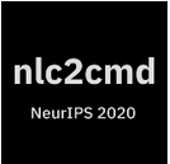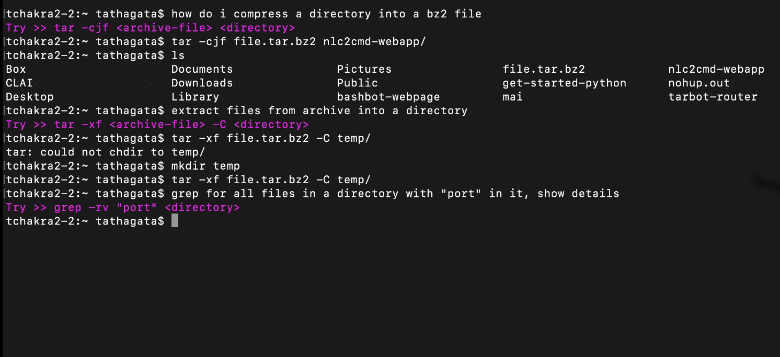| English To Bash Competition Opens |
| Written by Kay Ewbank | |||
| Thursday, 23 July 2020 | |||
|
A competition in which participants build natural language processing models that take a description in English and convert the description to its corresponding Bash syntax. The NLC2CMD competition is being run by IBM. The idea is to create natural language processors that will in the future mean a user working on a terminal can type what they want to do using normal language, rather than having to leave the terminal and go looking for answers on the Internet when they don't know the Bash commands for the task they're working on. Instead, the model will do the translation for them.
The competition is based on IBM’s open-source Project CLAI (Command Line AI), a research and development platform that aims to provide AI on the command line. Using CLAI, users of the bash terminal shell can access a range of AI-backed skills. A skill is an adaptation of one or more AI techniques for a specific use. The Natural Language to Command (nlc2cmd) skill lets the user specify tasks using a natural language (English) description, and retrieve the corresponding command line syntax. The intended use of this skill is to save users the time required to look up complex command syntaxes and attendant options and flags. The IBM researchers have already created two examples - compressing and uncompressing of archives using the tar command; and looking for strings in files using the grep command.
When a user types in a natural language phrase, it is passed through a natural language classifier on IBM's Watson Assistant. If there is a significant match with the known syntax patterns of tar and grep, the user command is translated into the corresponding command line syntax. CLAI provides a plug-and-play framework and simple interface abstractions to bash and its underlying operating system. Developers using CLAI can access the command line through a simple sense-act API for rapid prototyping of newer and more complex AI capabilities. The aim of the competition is to increase the range of Bash commands that will be recognized and translated. The initial stage has opened now, and entrants can access starter code, sample data, and evaluate their algorithms on public data. In September, the next stage of the competition starts, with the release of the validation dataset. Entrants will then be able to run their model against the dataset as often as they want. The final stage happens from mid-October, when entrants can try their entry against the final test data. The competition ends on October 31. There are two sets of prizes - for accuracy and efficiency. For the accuracy prize, the top two teams with the highest scores will win a grand prize of 2500 USD each. The team with the highest score will also be invited to replace tellina in the CLAI skill catalog. The top five scoring teams overall will also be judged on the efficiency of their solution in terms of the energy consumed. The most efficient team will win a grand prize of 2000 USD in the Efficiency Track. The organizers say it is possible for the same team to win in both tracks.
. More InformationRelated ArticlesPyro Now On Watson Machine Learning Robot TED Talk - The New Turing Test? Allen Institute Asks "Can You Make An AI Smarter Than An 8th Grader"
To be informed about new articles on I Programmer, sign up for our weekly newsletter, subscribe to the RSS feed and follow us on Twitter, Facebook or Linkedin.
Comments
or email your comment to: comments@i-programmer.info |



